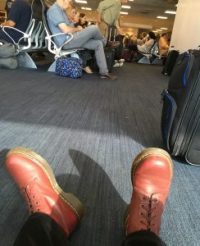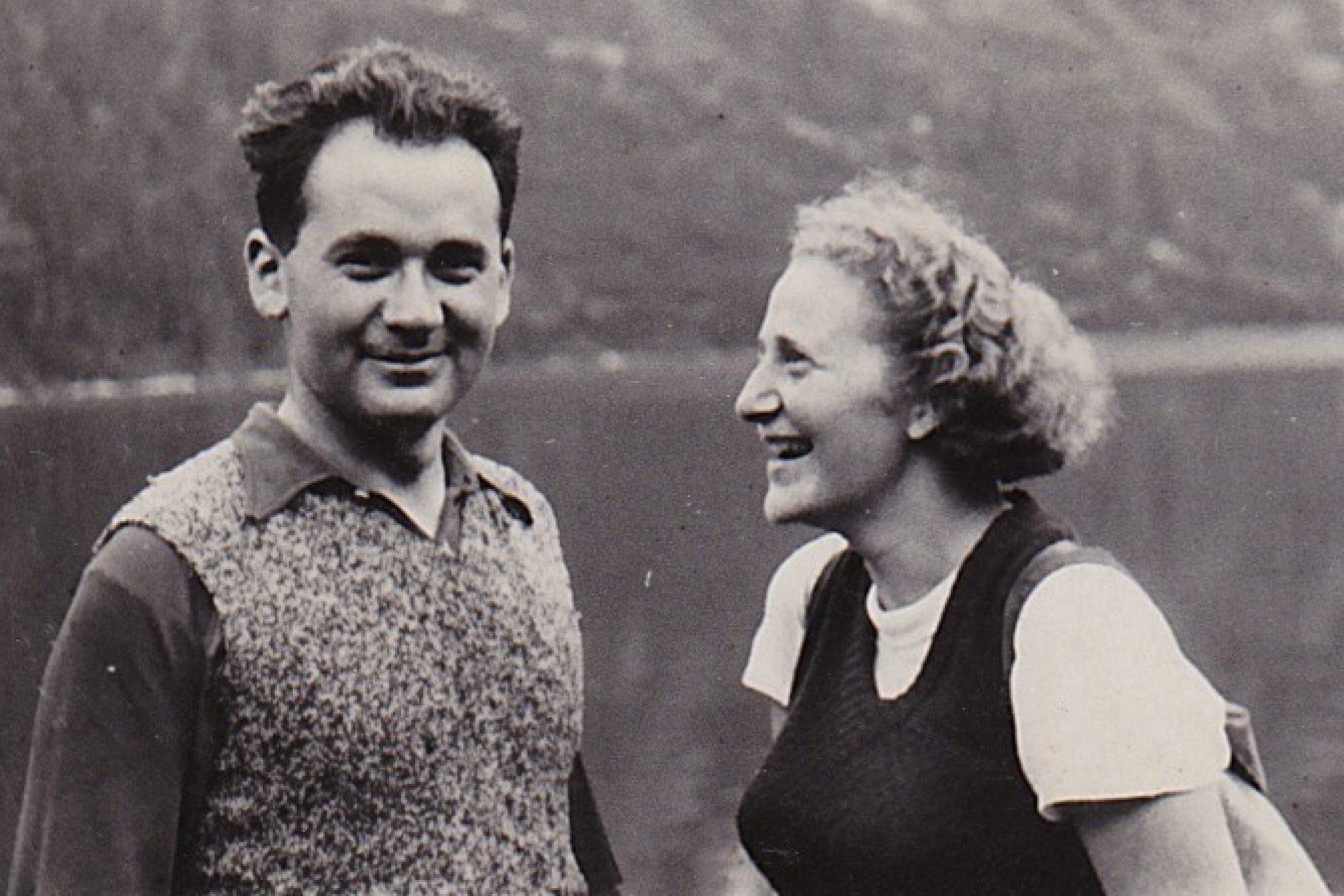As the granddaughter of Jewish Holocaust survivors, Poland was a place I was taught never to forget, but also never to set foot in.
In the 1980s and ’90s, when Jews around the world started visiting Poland and Eastern Europe to “find their roots,” my grandmother Brucha thought they were crazy. She’d been a refugee from Nazi-occupied Warsaw, escaping in the months before the Ghetto was locked down. To her, returning for any reason was unthinkable. “To go back to Poland, you’d have to take me in chains,” she’d declare, absolutely adamant.
Naturally, years later, when I decided to attend an international workshop on Healing From War in Poland, I felt terrified. I shook with fear every time I considered voluntarily getting on a plane to the land my family had fled for their lives– the cauldron where the vibrant Jewish culture of my ancestors was extinguished in the most violent and terrible way. Irrationally, I imagined I might arrive and be immediately imprisoned, or executed. But I was determined to go, to shake up this mindset that imprisoned me all on its own.
Getting myself to Poland was not easy. First, I lacked the financial resources to make the trip. With the help of friends, I created an online fundraiser and video, and promoted it for months with scores of emails and social media posts to raise the needed funds. Second, I’d struggled for years with chronic illness, pain and digestive problems (a main reason for my fiscal challenges) so I had to train my body to handle the long hours of travel, full workshop days, modest accommodations, and weeks of eating unfamiliar food.
My terror made planning the trip an ordeal. Every decision felt like life or death. Which flight should I take? Which airline was safest? For my few extra days in Warsaw, should I stay in the former Warsaw Ghetto, where my grandparents lived before the war? This last question alone cost me several sleepless, anxious nights. A notorious over-packer with health-related special needs, I worried how to balance my compulsion to bring everything I might possibly need with the challenge of shlepping my stuff around to several locations during my three weeks away.

At JFK, the Lot Polish Airlines terminal was so crowded that I had to sit on the floor. I felt noticeably uncomfortable in the sea of straight, blonde hair and Eastern European visages. The older people’s faces looked pinched, closed, and tight– like they’d suffered a lot (as most Poles of their generation had, I learned). Though all likely born after the war, I found myself imagining which one may have saved a Jew, or turned one in. I wondered if they could tell I was Jewish.
As the plane took off from JFK, a phrase from a familiar Yiddish song popped into my head:
Tsi gedenkstu vi ikh hob dikh gelernt haltn a shpayer in di hent? Do you remember how I taught you to hold a machine-gun in your hand?
I couldn’t immediately place the song, but I thought to myself, “Oh yes, I do. I remember.”
Not that I’ve ever held a machine-gun, or any gun, for that matter. But this is where my mind was as I flew to Poland for the first time. The line is from a song called Shtil Di Nakht (Still, The Night) by the poet Hirsh Glik. It tells the story of three partisans who blew up a German military transport on the outskirts of Vilna in 1942. I think I learned it at my Yiddishist, socialist summer camp, Hemshekh, in the Catskill Mountains, where the bulk of both campers and staff were descendants of Holocaust survivors (or survivors themselves) who knew some of those partisans personally.
During the overnight flight, I remained alert and vigilant, despite all the articles I’d read that advised sleeping as much as possible in the air to minimize jet-lag. How could I sleep, heading to Poland, with my grandmother’s admonitions echoing in my head?
At 7:00 AM, Polish time (1:00 AM for me), the sun shone through the airplane windows and the breakfast snacks arrived. Soon after, the pilot announced our impending descent into Warsaw.
To my surprise, my first thought was, “I’m coming home.” I burst into tears. I can still cry, thinking of this moment when everything changed for me.
 I certainly hadn’t anticipated this. How strange to feel so strongly that I was returning, when I’d never been here before. Yet, even before I landed, Poland felt like it was mine, as it did to my grandparents before they’d been forced to flee. My consciousness began to slowly shift its focus from the terror and losses of the Holocaust, toward the concurrent truth of the full, rich lives my known and unknown Jewish forebears had had during their pre-war lives, despite the anti-Semitism that already existed.
I certainly hadn’t anticipated this. How strange to feel so strongly that I was returning, when I’d never been here before. Yet, even before I landed, Poland felt like it was mine, as it did to my grandparents before they’d been forced to flee. My consciousness began to slowly shift its focus from the terror and losses of the Holocaust, toward the concurrent truth of the full, rich lives my known and unknown Jewish forebears had had during their pre-war lives, despite the anti-Semitism that already existed.
This was the beginning of my healing from war. I would discover more (good and difficult) during my time in Poland, but the feeling that the place was mine remained with me throughout my stay.

